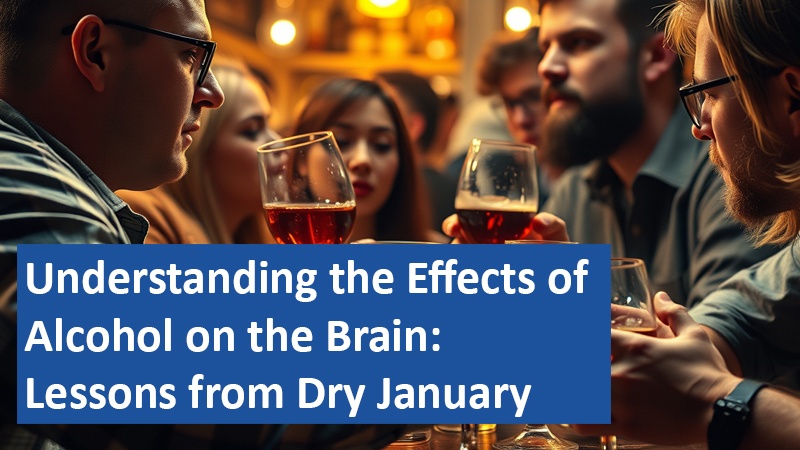Excessive alcohol consumption can lead to blackouts, causing individuals to lose chunks of memory and control over their actions. The phenomenon, commonly referred to as a “blackout,” offers a stark reminder of alcohol’s impact on the brain and body. Initiatives like Dry January encourage individuals to reconsider their relationship with alcohol and promote healthier habits.
By August Roberts
What Happens During a Blackout?

Blackouts occur when alcohol consumption impairs the brain’s ability to form new memories. Dr. Andreas Jähne, an addiction specialist, explains that alcohol in high doses sedates the brain, effectively blocking the storage of new information. Unlike a complete unconscious state, blackouts may leave individuals with fragmented memories that surface sporadically, triggered by sights or smells. Factors such as binge drinking and consuming high-proof alcohol increase the likelihood of blackouts. Women are generally more susceptible due to lower body weight and differences in alcohol metabolism.
Why Blackouts Are Dangerous
Blackouts pose significant risks beyond memory loss. The excessive alcohol levels required to cause a blackout can damage organs like the liver and harm brain cells. During a blackout, individuals are vulnerable to accidents, injuries, or exposure to dangerous situations, akin to the effects of being drugged. Dr. Jaehne highlights the unpredictability of blackouts, stressing that while someone might avoid harm once, the next episode could have dire consequences. The inability to control or recall actions during a blackout underscores the serious nature of excessive drinking.
Dry January: A Fresh Start
Dry January, a global movement encouraging people to abstain from alcohol for the month of January, has gained traction as a way to reset drinking habits. Research shows that a month-long break from alcohol can improve liver health, enhance sleep, and boost mental clarity. Participants often report feeling more energetic and achieving a greater sense of control over their consumption habits. The initiative also serves as a starting point for long-term lifestyle changes. By reflecting on the role of alcohol in their lives, individuals are more likely to moderate their drinking or adopt healthier behaviors throughout the year.
Reevaluating Alcohol Habits
Experiencing a blackout should prompt serious reflection. Dr. Jaehne advises individuals to weigh the risks of excessive drinking and consider strategies to avoid future incidents. Combining personal awareness with movements like Dry January can help create lasting change and reduce the harm associated with alcohol abuse.
Blackouts highlight the profound effects of excessive alcohol consumption on the brain and body, underscoring the importance of moderation. Initiatives like Dry January offer a valuable opportunity to reassess drinking habits and experience the benefits of reducing alcohol intake. By embracing such changes, individuals can improve their overall well-being and reduce the risks associated with alcohol misuse.
Based on content from www.utopia.de and additional research.